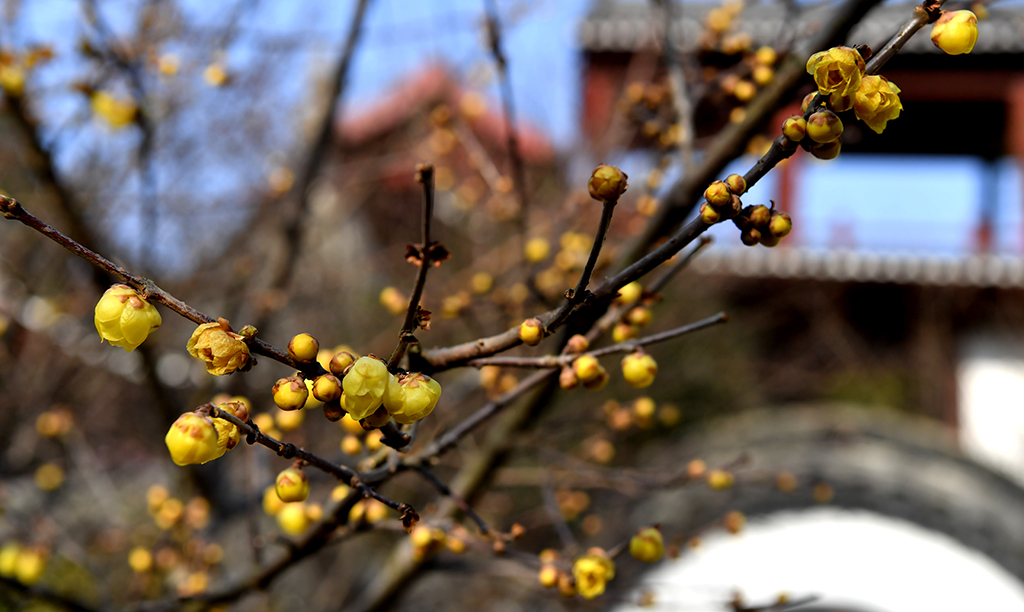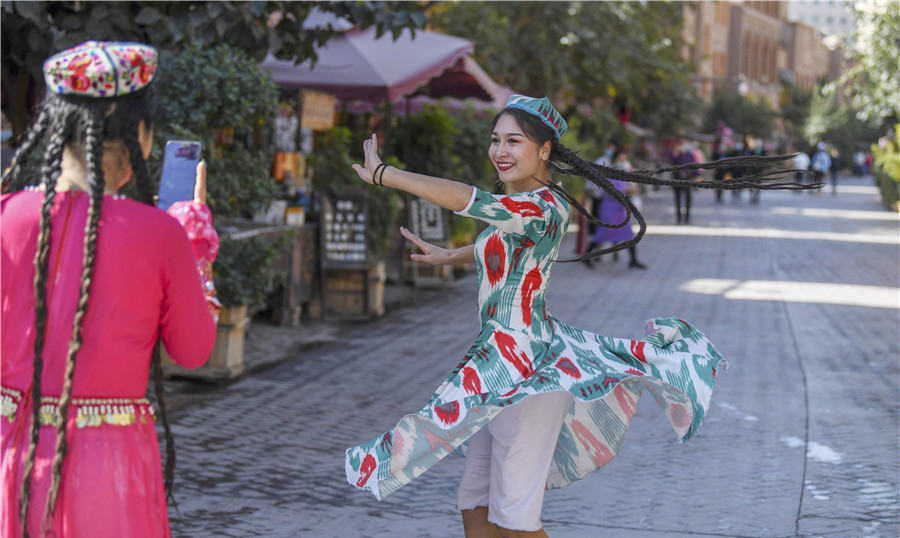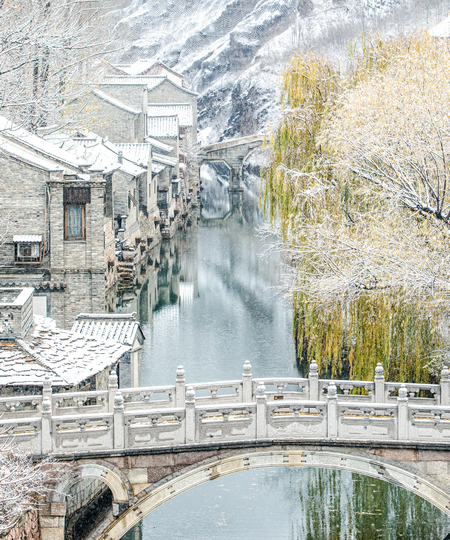Village draws urban visitors with Tujia culture
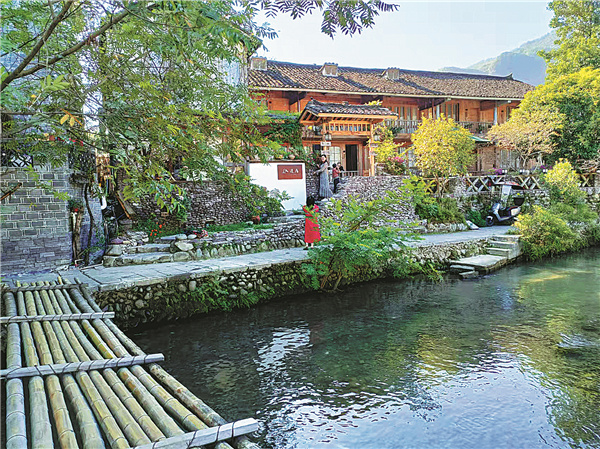
Yunshe in Guizhou province draws tourists with its amicable weather, natural beauty and ethnic culture. [Photo provided to China Daily]
Yunshe draws tourists with its amicable weather, natural beauty and ethnic culture. Visitors can feast their eyes on the green scenery once they set foot in the village that sits in Jiangkou county, Guizhou province, at the foot of the Fanjing Mountain.
One can appreciate folk songs and dances of the local Tujia community, ancient papermaking techniques and a wetland park at close quarters, while taking in the "mysterious" Shenlongtan, to the east of Yunshe. The spring water at the scenic spot sometimes flows backward and the Tujia people use it to predict the weather.
Many travelers have been charmed by the primitive natural atmosphere of Yunshe, where women wash clothes by a creek, and men remove weeds on river banks with a sickle. Children chase one another.
Tang Ji chose to stay in Yunshe and run a homestay business after Fanjing was added to UNESCO's World Heritage list for natural sites in 2018 for its rich wildlife, including endangered plants and animals. He was born in Jiangkou and engaged in space design in Guangzhou, Guangdong province, after graduation from the Xi'an Academy of Fine Arts. He was attracted to the rustic charm of Yunshe during his earlier travels.
"You can soak your feet in the gurgling water to beat the summer heat, and play with ducks in the river," Tang says. "It is a rare hidden getaway that is also full of mundane life."
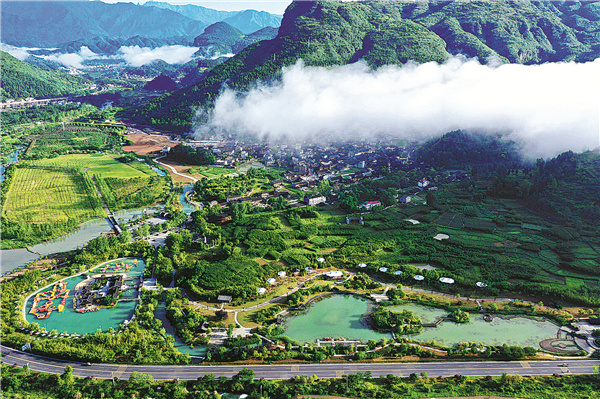
Yunshe in Guizhou province draws tourists with its amicable weather, natural beauty and ethnic culture. [Photo provided to China Daily]
Tang had the idea of developing a homestay after he found local villagers only offer humble rural accommodations. He rented an empty house and renovated it. He settled on a simple design concept and decided to use local resources for his project. With the idea of retaining the original look of the house, Tang paved a stone road in front of the house, put up bamboo screens and hand-painted works featuring the village's scenery, and established a papermaking studio. It instilled in the homestay a strong artistic vibe. Visitors can enjoy tea, party music, films, leaf-sculpting and painting on pebbles, as well as try their hand at cooking Tujia cuisine in an open kitchen at his homestay.
"Most travelers will choose to stay a night here after touring the Fanjing Mountain," Tang says.
The village is a 20-minute drive from there. Tang says his homestay is popular with visitors from Beijing, Shanghai and Guangdong.
"They usually come once a year and stay a month to fit in with the quiet and comfortable ambience and blow off steam after their accumulated work pressure in the cities," Tang says.
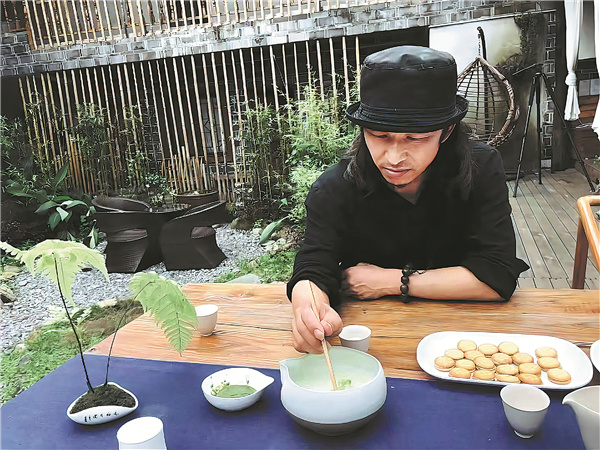
Yunshe in Guizhou province draws tourists with its amicable weather, natural beauty and ethnic culture. [Photo provided to China Daily]
Speaking about why he set up a papermaking studio on the second floor of his homestay, Tang says he wants his guests to savor the tradition of papermaking in the village over hundreds of years.
Visitors can make exquisite lanterns, paper with flowers and grass patterns.
Tang is now planning to build a facility that offers learning and pastoral photography for the increasing number of family travelers who knock on his door. He expects the new facility to open in June.
The popularity of Yunshe has encouraged an increase in the local rural tourism services. The village has more than 40 restaurants and almost 20 homestays. It recorded more than 126,000 "traveler visits" in the first six months of this year, raking in 42.5 million yuan ($6.7 million) in tourism revenue. The village's per capita disposable income has reached 18,000 yuan.
Yunshe received more than 180,000 such visits in 2020, including more than 13,000 who stayed at least a night. Local authorities have upgraded infrastructure and tapped into folk culture to boost tourism and involve locals in the industry.
A Tujia folk customs museum and tourism commodity shop have been built, with a parking lot and sightseeing lanes. Old traditions, such as Tujia wedding customs and toasting songs, have been included in tourism services to enrich travel experiences.
Wang Jin in Guizhou contributed to this story.

